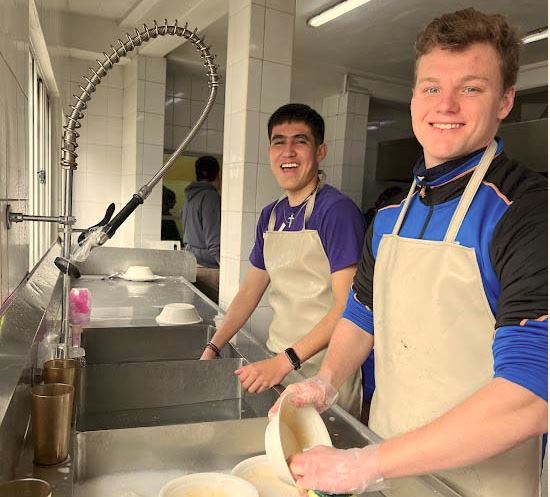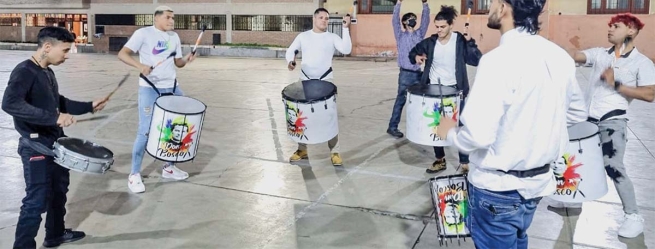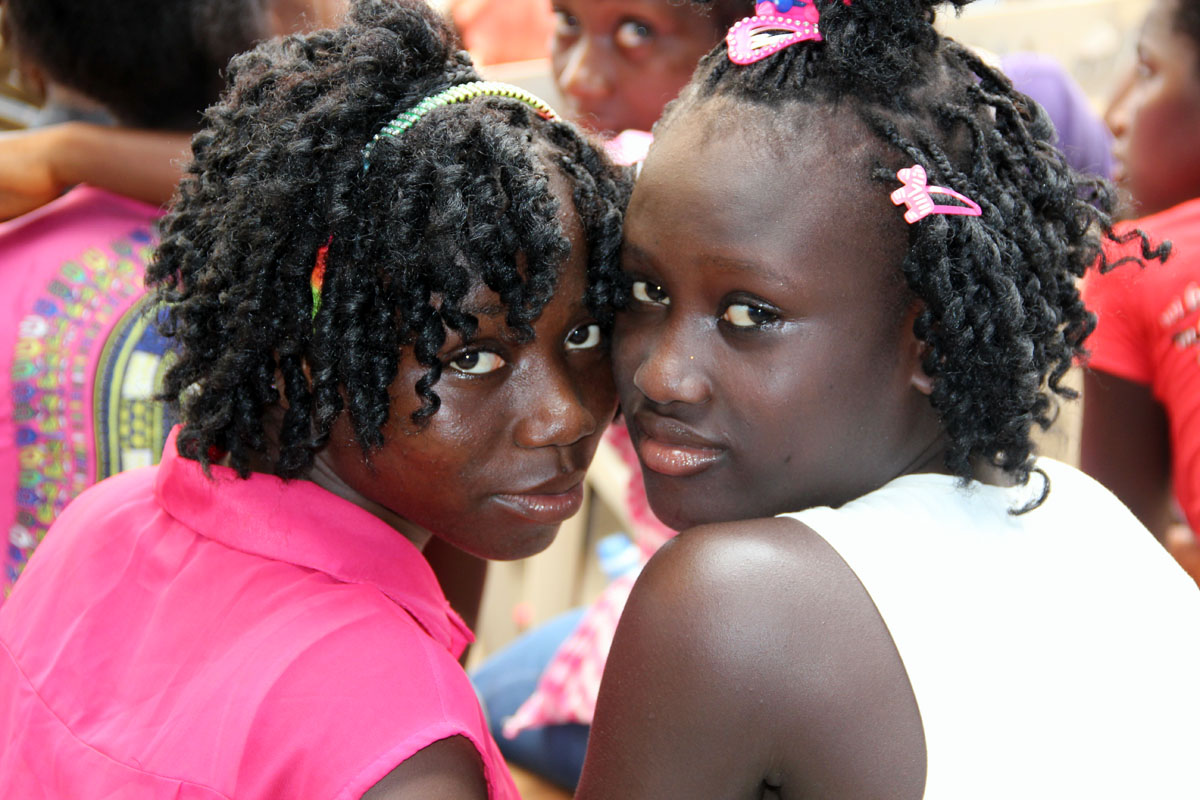WORLD DAY AGAINST TRAFFICKING IN PERSONS: Salesian programs help prevent trafficking, support victims

2023 theme is ‘Reach every victim of trafficking, leave no one behind’
(MissionNewswire) Salesian Missions, the U.S. development arm of the Salesians of Don Bosco, joins humanitarian organizations and countries around the globe in recognizing World Day Against Trafficking in Persons. In 2013, United Nations member states adopted a resolution that designated July 30 as the World Day Against Trafficking in Persons. The day aims to raise awareness about the victims of human trafficking and promote and protect their rights.
This year’s theme “Reach every victim of trafficking, leave no one behind” calls on governments, law enforcement, public services, and civil society to assess and enhance their efforts to strengthen prevention, identify and support victims, and end impunity.
The United Nations Office on Drugs and Crime (UNODC) noted, “Globally, national responses, particularly in developing States, appear to be deteriorating. Detection rates fell by 11% in 2020 and convictions plummeted by 27%, illustrating a worldwide slowdown in the criminal justice response to trafficking. The COVID-19 pandemic also changed the characteristics of trafficking, pushing it further underground and potentially increasing the dangers to victims by making the crime less likely to come to the attention of the authorities. In fact, 41% of victims who manage to escape their ordeal reach out to the authorities on their own initiative — another clear sign that anti-trafficking responses are falling short.”
As UNODC explained, “those who lack legal status, live in poverty, have limited access to education, health care, or decent work, face discrimination, violence, or abuse, or come from marginalized communities are often the primary targets of traffickers.”
Salesian missionaries who operate in more than 130 countries work both to prevent human trafficking and to care for victims who are living on the streets and seeking a second chance in life.
“Salesian missionaries around the globe provide programs and services to help youth lead healthier and productive lives, combat trafficking, and ensure youth are safe,” said Father Timothy Ploch, interim director of Salesian Missions. “Salesian missionaries in many countries educate youth about the dangers associated with migration, which can put them at risk of trafficking and those who might wish them harm. One of the primary ways we support youth is understanding the needs of the local market and providing training programs that help youth find work in their own communities in employment sectors that are looking for skilled labor.”
To mark World Day Against Trafficking in Persons 2023, Salesian Missions is proud to highlight programs around the globe that provide life-changing education, prevention and awareness.
MEXICO

The goal of the Salesian Tijuana Project in Mexico is to create an extensive educational network in areas where poor youth are at risk of social exclusion.
Salesian Tijuana Project is committed to the most vulnerable people in the city of Tijuana, Mexico, especially migrants and refugees. The Salesian Center houses a refectory and other project activities. Since 1987, it has been providing services to migrants and poor youth living on the border between Mexico and the United States.
The goal of the Salesian Tijuana Project is to create an extensive educational network in areas where poor youth are at risk of social exclusion. The project took shape through Salesian oratories and educational centers where children grow up learning to share faith, culture, and sports within their communities.
The Salesian Center also acts as a hub for migrants who, besides much-needed material help, are also offered a familiar and welcoming environment. They can access haircuts, a change of clothes, a shower, and an opportunity to call and make contact with their families. The Salesian Center has a partnership with the Red Cross and local volunteer doctors who offer psychological and medical help.
PERU

More than 700 youth have passed through Don Bosco House in Peru in recent years, including migrant youth from Ecuador and Colombia.
Don Bosco House, in the Magdalena del Mar neighborhood in Lima, Peru, was established to provide support for the wave of Venezuelan migrants who came to the city in 2018 and 2019. Today, it is a shelter that houses 45 young migrants and refugees between the ages of 18 and 25, as well as five families who are faced with extreme poverty. More than 700 youth have passed through Don Bosco House in recent years, including youth from Ecuador and Colombia.
At Don Bosco House, youth have the support of educators and psychologists, and they live in a family atmosphere that fosters personal and spiritual growth. These youth have faced abandonment, separation, child labor and prison experiences.
Youth go through four phases of support at the house. During their introduction, Salesian staff spend time getting to know them, their background and what motivated them to seek support. After that, they get settled in and learn the dynamics of the house and what’s expected of them.
Once settled, youth look for work with the support of resume preparation and research. Youth also attend group training and have access to recreation, a music room and the internet. As youth become more independent, they are expected to take on household responsibilities and commitments. For youth who arrive with their families, work is done to help the family unit as they all get settled.
SIERRA LEONE

Don Bosco Fambul in Sierra Leone provides support and recovery for underage girls who are victims of sexual violence and abuse and forced into prostitution.
In Sierra Leone, Don Bosco Fambul’s Girls Os+ program provides support and recovery for underage girls who are victims of sexual violence and abuse and forced into prostitution. Since the program was launched six years ago, it has changed the lives of more than 600 girls and given them the opportunity to start a new life and access education.
Don Bosco Fambul has a staff of 120, including Salesian social workers who go out to the streets, slums and marketplaces. They engage with vulnerable youth and encourage them to join Don Bosco Fambul’s programs.
To support the Girls Os+ program, Don Bosco Fambul launched a therapeutic center with four large buildings, a clinic, accommodations for volunteers and social workers, a house for the Salesian community, and a chapel. It’s the only program of its kind in West Africa that enables girls to live in a safe environment to overcome their traumas and start a new life.
Salesian missionaries, professional social workers, and pastoral workers provide crisis intervention and follow-up care for girls and young women who have been victims of sexual assault. Girls that access services at the shelter are also able to attend educational programs that are a part of the broader Don Bosco Fambul network of programs. These educational programs give young women the skills necessary to find and retain employment.
UGANDA
Salesian missionaries run Don Bosco Children and Life Mission (Don Bosco CALM), located in the town of Namugongo, just northeast of the city of Kampala, Uganda. The Salesian organization rescues, rehabilitates and reintegrates street children back into society. Salesians meet basic needs and provide education, socio-cultural activities and recreation to help youth have a bright future.
Don Bosco CALM works primarily with homeless boys and those who have been orphaned, battered, and neglected. They also work with other vulnerable youth and children, including those who are HIV/AIDS positive. Currently, the organization has 165 children in its care. All of the children are in school with some attending Don Bosco Primary School, Salesian secondary schools and vocational training institutes.
Peter is one of the youth at Don Bosco CALM. When he was only 9 months old, his mother placed him in the care of his grandmother and then disappeared from his life. At age 6, Peter lost his father. When none of his other family members could take care of him, he spent seven years on the streets.
Thanks to intervention by Peter’s aunt, he went to live at Don Bosco CALM, where he had trusting adults to provide support. One Salesian said, “As soon as he arrived, he received the care he needed and was enrolled in school. At school, he discovered the desire to study, obtained very good scores, and always stood out for his commitment and results. Today, Peter happily attends secondary school and gives everyone a smile, cheerfulness and his gratitude for this journey.”
###
Sources:
ANS Photos (usage permissions and guidelines must be requested from ANS)
MEXICO: Students volunteer in Tijuana
PERU: Venezuelan migrants find shelter, support
SIERRA LEONE: Program for girls facing abuse honored


